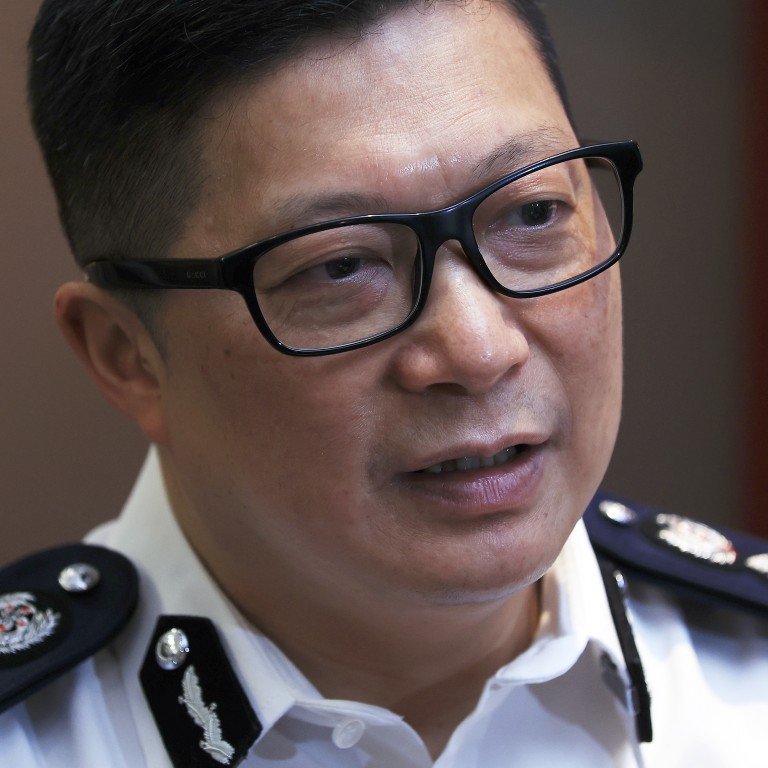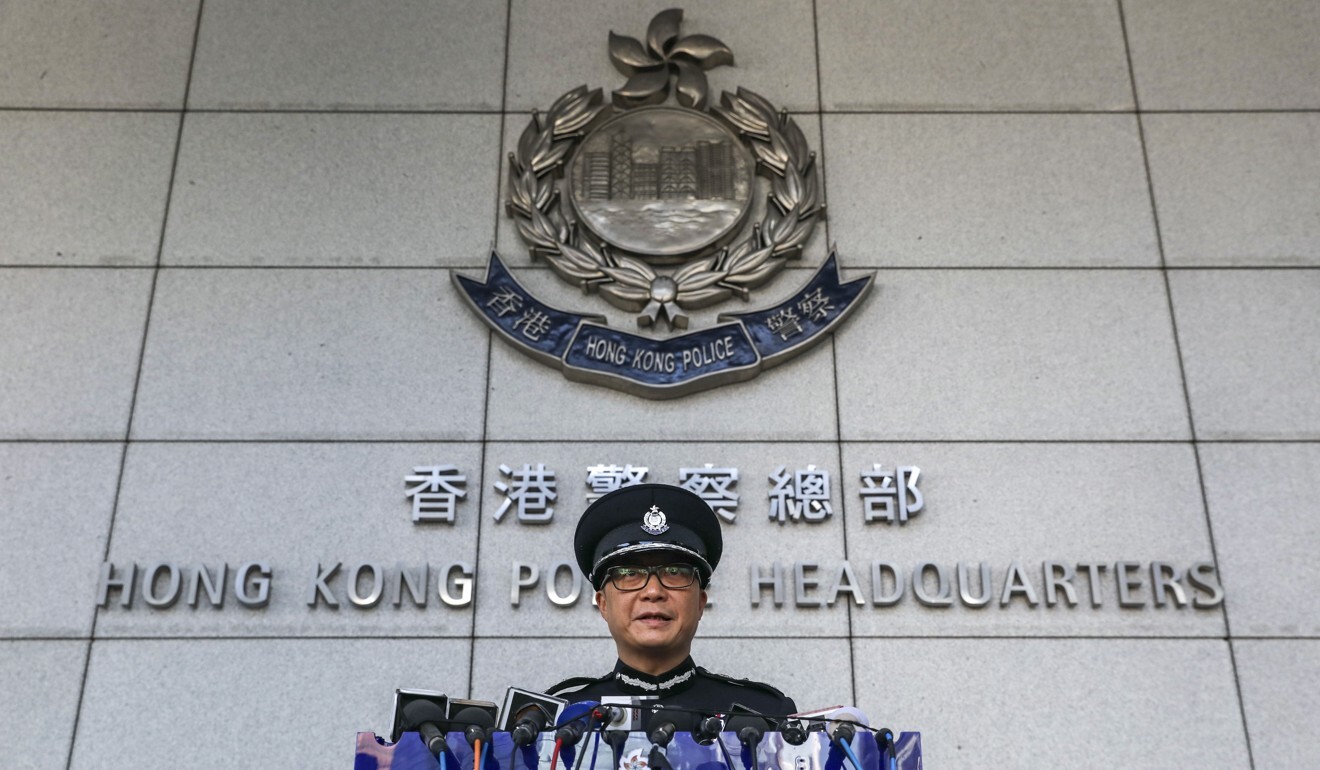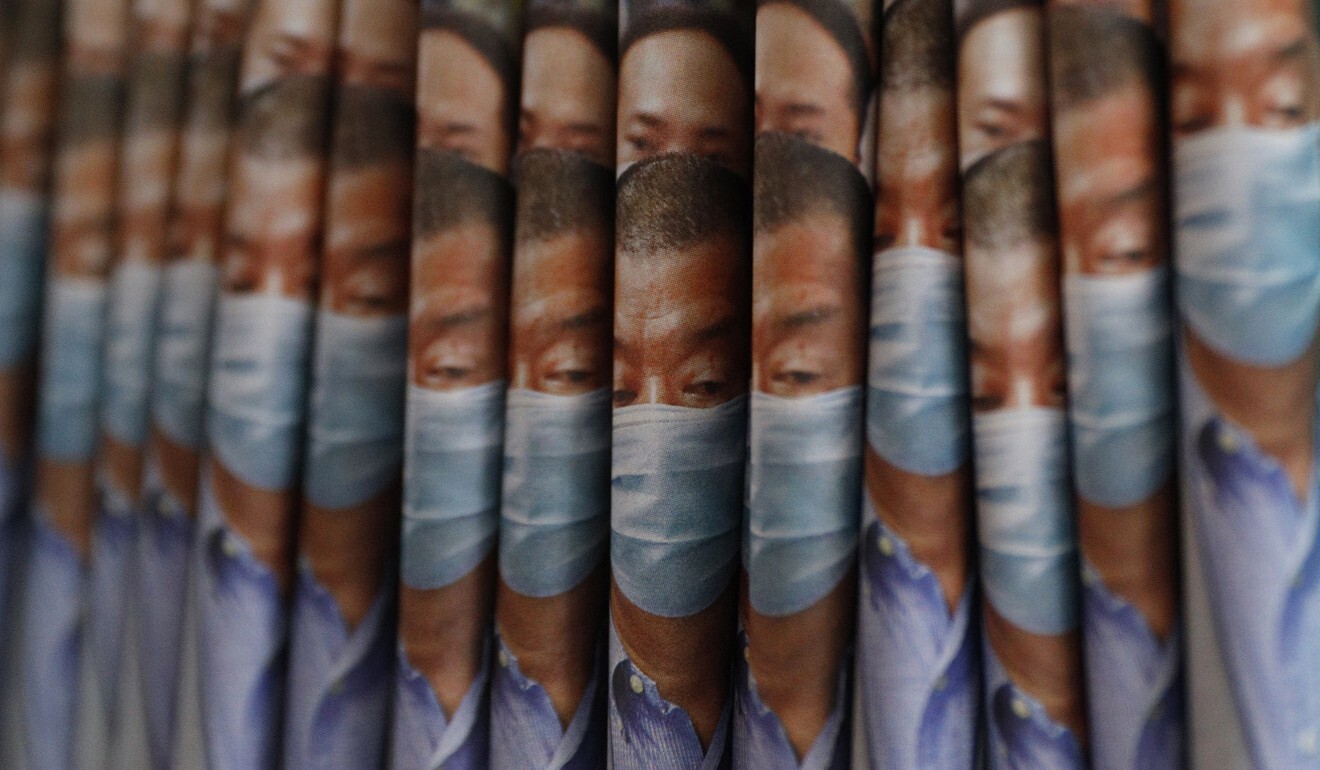
Hong Kong police chief says tackling ‘smears’, higher crime rate are top priorities, while brushing off talk of politicisation of force
- Speaking to the Post one year after taking command of the force, Commissioner of Police Chris Tang says high crime a ‘price to pay’ for last year’s unrest
- Police chief also defends his personal style, saying he does not ‘like picking fights, but I must tell people the truth’

That was a time when morale had hit rock bottom and police were stretched to their limit tackling massive protests sparked by the government’s since-withdrawn extradition bill. Violence by radical protesters was at its peak and police themselves were accused of using excessive force and questionable tactics.
Tang was credited with bringing in a more resolute style of leadership and restoring confidence among demoralised frontline officers.
Hong Kong’s overall crime figures rose by 16.6 per cent to 52,859 in the first 10 months of this year, compared with the same period in 2019. Reports of blackmail surged the most among all categories, almost tripling from 379 to 1,064.
The number of young people arrested, aged 10 to 20, also shot up from 1,965 to 3,151 between January and September. A quarter of them were arrested on protest-related charges.
The police commissioner said the higher crime rate, while having improved over the past month, was a “price to pay” for social unrest, as it bred lawlessness. School bullying had become particularly alarming, he noted.

With officers from the city’s 6,000-strong riot squad having returned to regular policing duties since July, Tang said, the force was now getting a grip on smaller crimes.
“With faith, we go farther” was the new motto, he said, and along with crime prevention, community engagement to repair police public relations was also a priority.
Tackling a “smear campaign” to demonise police and render their law enforcement efforts ineffective would be a tough challenge, Tang said, but the force would not let those behind such attacks succeed. He also defended his style of being quick to speak out when asked if he was being too aggressive and oversensitive to criticism of police.
“I do not like picking fights, but I must tell people the truth. People should be given the other side of the story to show the harm caused by lawbreaking,” he said. “There has been much fake information to mislead people and encourage them to break the law. This is a scourge to society and I must correct it.”
Hong Kong national security law tip line gets 10,000 messages in first week
Tang accused unnamed media forces of sabotaging police efforts to enforce the law.
“A powerful person, who holds control of a media organisation, openly requested foreign countries to sanction Hong Kong and China. Everyone knows about it. He was once arrested by our National Security Department for collusion with foreign forces,” he said.

“Facing such a complicated situation in which media attacks on our law-enforcement effectiveness are in full swing, our work in fighting smears cannot stop,” he said.
“We don’t target a particular entity. We act on reports. I cannot give up prosecution just because someone is working for a radio station,” he said.
Hong Kong police officers arrested on suspicion of raping woman
The police chief also expressed strong regret over recent arrests of police officers accused of crimes ranging from theft to assault and rape. He vowed to enforce a zero-tolerance policy against “bad apples” tarnishing the reputation of the force.
In the first 10 months of this year, police arrested 38 of their own colleagues, compared with 24 in all of 2019.
Earlier this week, two officers were arrested on suspicion of raping a woman in a hotel room in Mong Kok.

